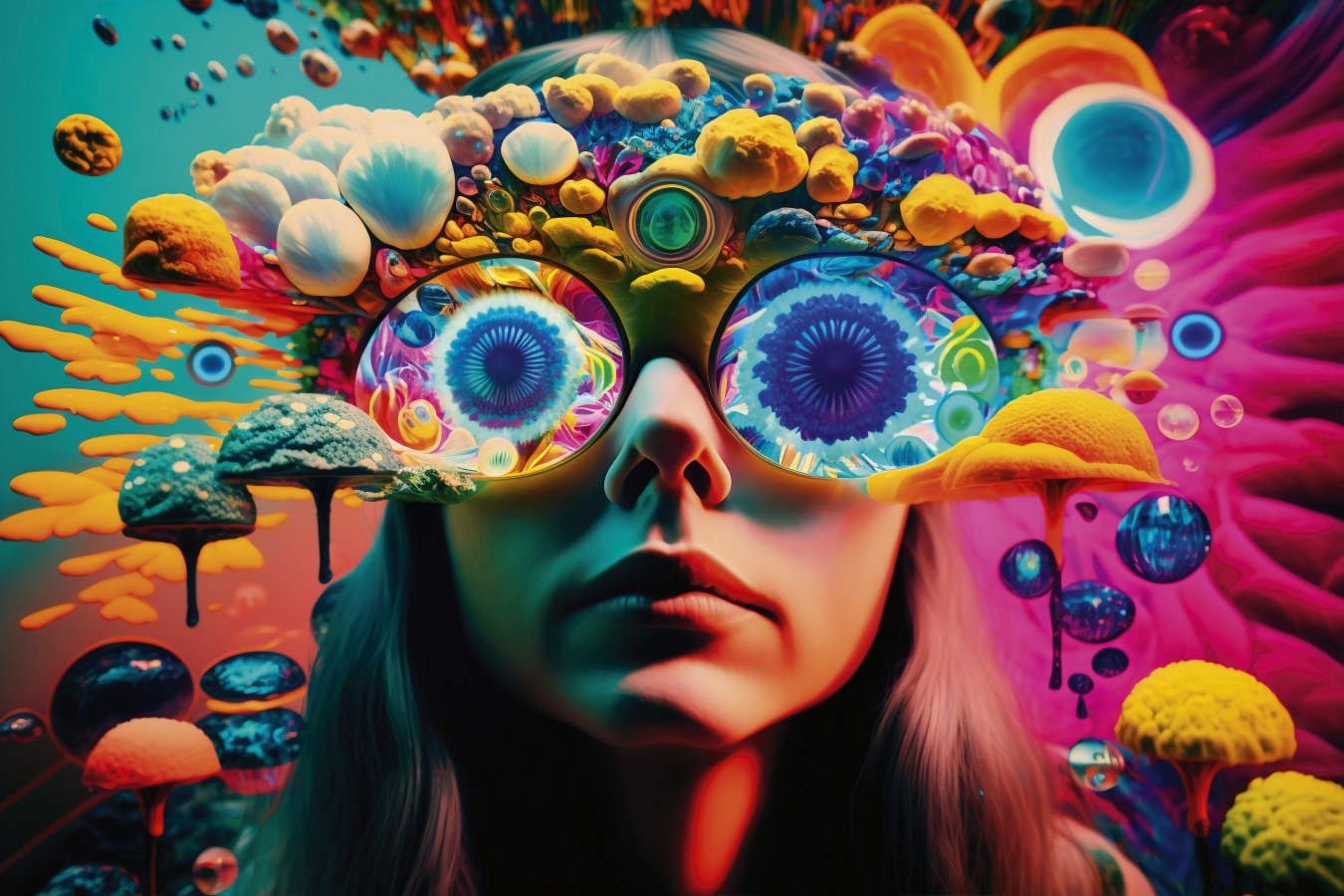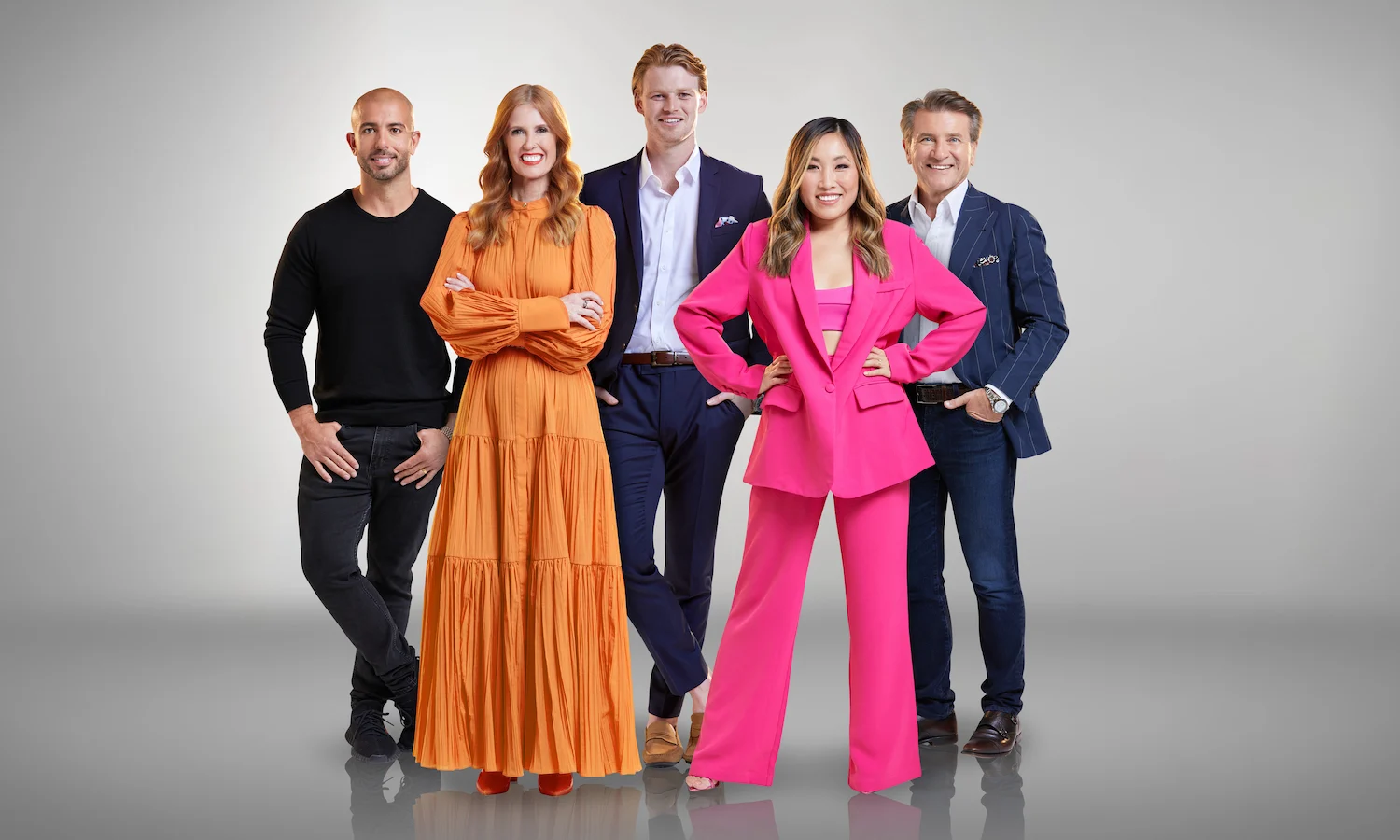How a Shark Tank shark was inundated with requests from fellow business leaders to take them to the Amazon and make them one with everything.
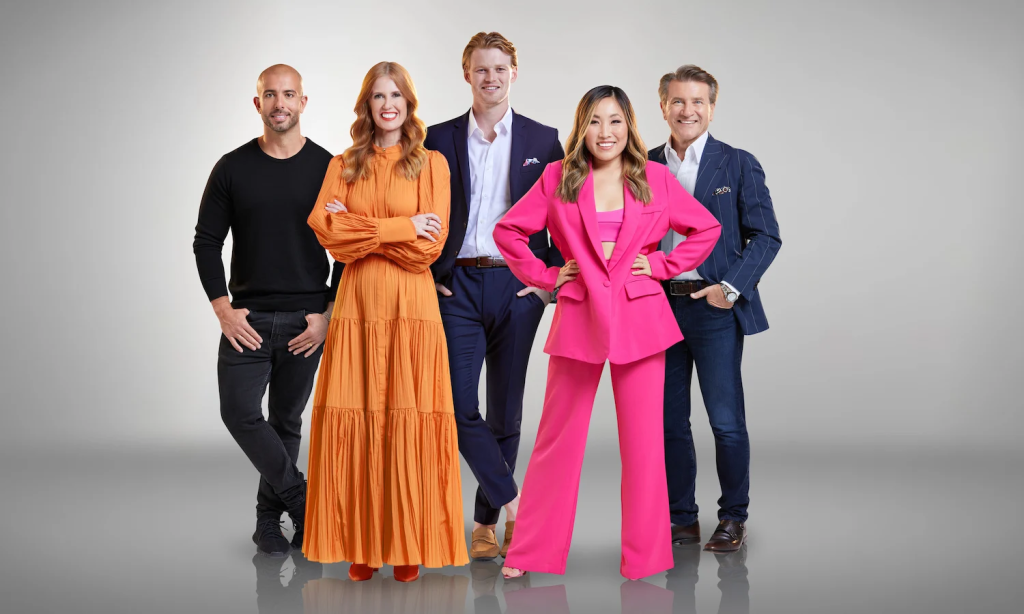
Catriona Wallace used to lead an ASX listed company. She is now leading a psychedelic travel business. But she wants to make clear she did not “sit with plant medicines” while she was at the helm of the artificial intelligence pioneer Flamingo AI Ltd which she’d founded. No, she waited until the day it was sold in October 2020.
“I closed the computer, got out of the corporate suit, into my hippie-girl outfit and sat ayahuasca for the first time,” she says.
Dr Wallace, a shark in the upcoming series of Shark Tank, sipped on the South American brewed drink, often referred to as the ‘Mother’ or ‘Grandmother’ medicine, in a shamanic ritual. “That night was the most horrendous night of my life,” she says. “The darkest night of the soul … I journeyed through the gates of hell, into the dungeon to meet my shadow self, and it was the most unpleasant experience I’ve ever had.”
She had another ayahuasca session booked for the following night, but she vowed never to touch it again. Her “guide”, however, suggested she write about the experience. “Just see if ‘the Mother’ got any of it right.”
Wallace started writing about what the demons in the dungeon had conveyed. “I’m too ego-driven, yeah, probably. I’m too focused on my identity, yeah, probably. I’m disconnected from children, true. There was a list of 20 things. That’s me.
“I’d been running in the tech world and had just disconnected from who I was. And the Mother just slapped me awake.”
Catriona Wallace, Shark Tank shark
She agreed to sit again, unsure if she could live through another night like the last. “It was the most profoundly beautiful night of my life,” she recalls. “Dragons and elves, angels and light and beauty, and visiting other realms. It changed my life forever. ‘I get it. I get that this is all real. I realise I have a lot of shadows I need to clean up.’”
And so she began a journey down the shamanic path. She also tried what is described as the most powerful psychedelic, the “god molecule” – the venom of the Sonoran desert toad. “Life changing,” says Wallace. “You know how in all spiritual doctrines there is the, ‘I am you, you are me, we are one with everything.’ And you go, ‘Yeah, really? Am I really one with that chair?’ This medicine for me was like, bang! You have total ego death within like 20 seconds. Everything is shut down other than your consciousness combined with the universal consciousness. I came back from that, ‘Holy fuck! I get it. I am actually one with everything.’”
She says the inspiration to found her social venture, The Responsible Metaverse Alliance, combining her skills as an ex-NSW cop and an AI founder to attempt to clean up the metaverse came out of a bufo (toad venom) experience.
The ingestion of the Sonoran desert toad venom is different to the “Kambo” ceremony that has been linked in recent inquests to two deaths on the NSW north coast. In kambo, the toxins of the Amazonian giant monkey frog are applied to burns on the skin and cause the person to vomit or purge.
Wallace started studying with a teacher of Sonoran desert toad medicine – active ingredient 5-MeO-DMT – and has since returned to Mexico and Peru numerous times.
Earlier this year, she was initiated into the Shipibo people’s shamanic tradition in a 26-day process in the Peruvian jungle. “It was the hardest thing I’ve ever done. I was broken physically, mentally, emotionally, and spiritually on day one … The Shipibo method is purification, lots of purging, lots of fasting.”
“Two weeks ago, I assisted a group of about 20 young changemakers and social entrepreneurs who sat with ayahuasca. I’m one of the supporters – we call them ‘spirit helpers’ – holding people together, smudging them with smoke, cleaning their purge buckets, looking after them.”
Catriona Wallace
When she started letting people in the business community know what she’d been up to, she got a big response, she says – equal numbers of men and women – curious about her adventures. And she was contacted by two travel companies wanting to get involved in organising high-end psychedelic travel trips to Mexico and Peru.
One of them was Nicholas Ingate from Sabbatical Travel. Ingate is an Australian who founded his boutique transformational travel business in the US, helping high-net-worth people find themselves, whether via a three-week survival experience in Alaska or a shamanic ritual in the Amazon.
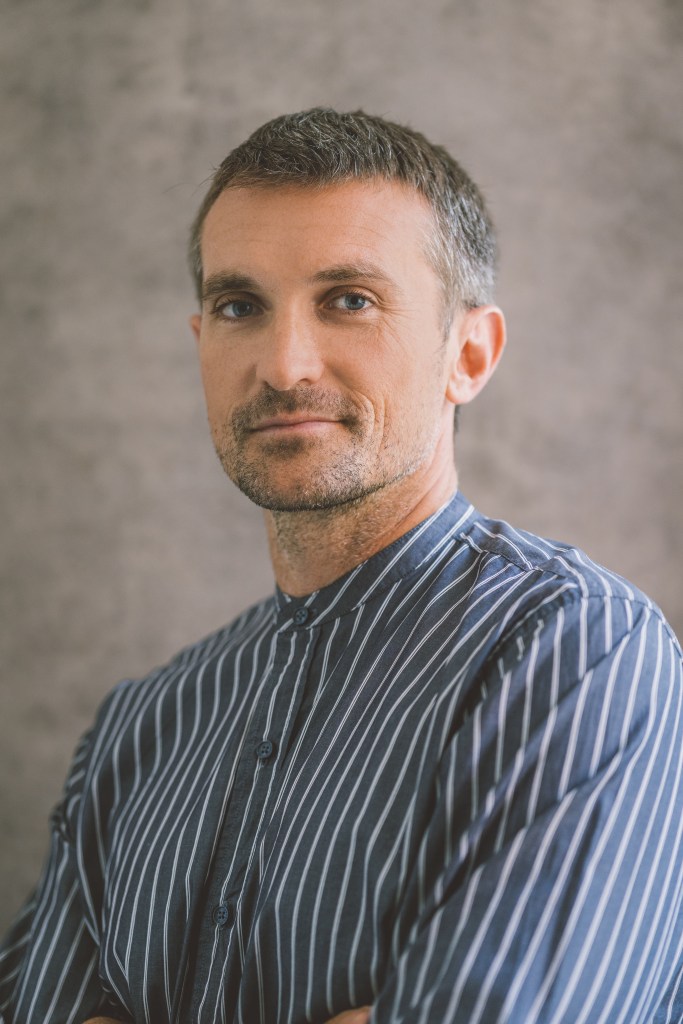
But he’s bringing the business back to Australia and is curating psychedelic travel journeys with Wallace. “We will take Australian executives and founders into places where these substances are legal. We’re doing it by the book,” Ingate says.
They’ll be offering three -to -10-day journeys with Wallace organising the experiential end of the psychedelic travel experience, while Sabbatical handles the travel. But there’s more to it than just going tripping, says Ingate.
“We’re building a curriculum, working one-on-one … to zero in on what our client is working on. Is it leadership? Is it reconnecting with the masculine or feminine? Our coaching team are well-trained at teasing out that North Star, so to speak.
“Then we take the individuals or small groups to the different facilities, and that’s where Catriona and her team step up with their expertise.”
Upon return, there’s a six-week reintegration.
“The journey is important, but when you come home, that’s when the real work and the transformation begins. We want to see mindset shift or behaviour change.”
Nicholas Ingate, CEO Sabbatical Travel
Wallace says the idea of psychedelic travel is getting traction with her corporate peers. “You get to a certain age, you’ve been grinding, grinding, grinding for 20 years, and your kids are grown up, and you’re thinking, ‘Is this all there is?’ Or they’re listening to Tim Ferris, Sam Harris, and Joe Rogan. They’re curious. We say that seven hours of ayahuasca is equivalent to seven years of psychotherapy.
“Two weeks ago, I assisted a group of about 20 young changemakers and social entrepreneurs who sat with ayahuasca. I’m one of the supporters – we call them ‘spirit helpers’ – holding people together, smudging them with smoke, cleaning their purge buckets, looking after them.” She said some were processing trauma, others were just experiencing joy, and others were figuring out their purpose.
“For every single one, it was a profound experience, but for at least half, they said their lives will never be the same again.”
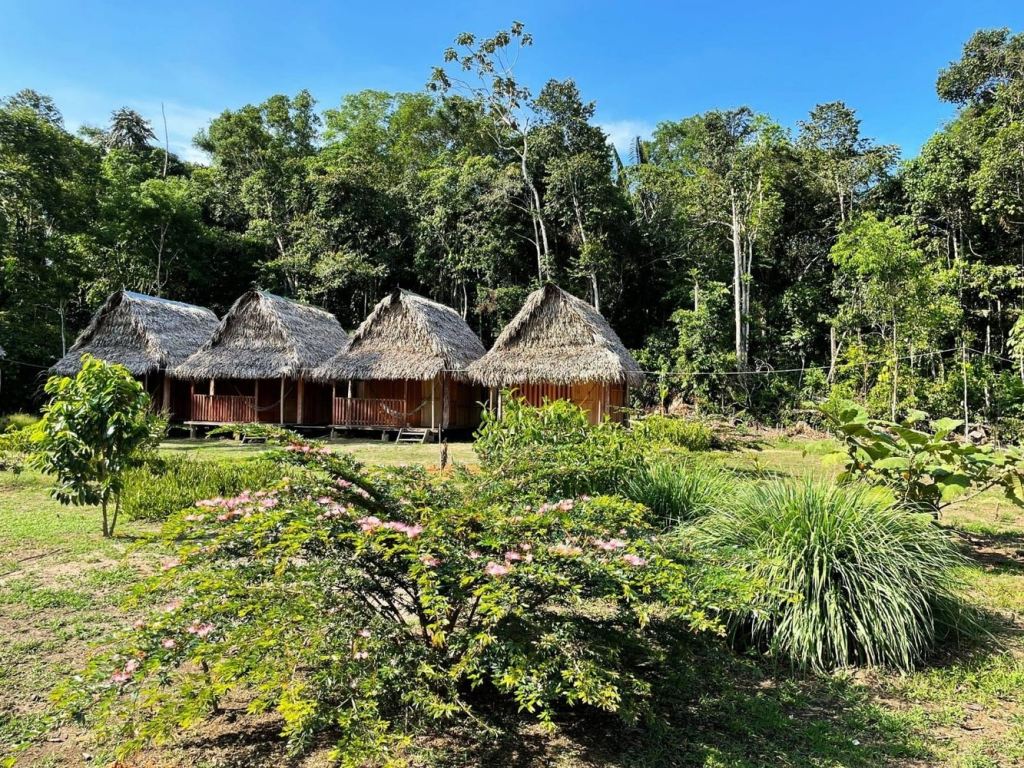
One the places they will use is Aya Healing Retreats in Peru. Founder Elio Geusa, an Italian who has spent a lot of time Melbourne, says participants range across the age and social spectrum.
“They’re usually into wellness – doing ‘personal work’ and fitness. But often also addictions. From the Australians that can be alcoholism. Americans seem more likely to be addicted to prescription medications and suffer depression and anxiety.
“And we don’t just work with Ayahuasca. We use different non-psychedelic plants that support anxiety, depression, addictions, blood pressure, diabetes. All different things. We have a plant for it.”
Forbes Australia Issue Five is out now. Tap here to secure your copy and membership
